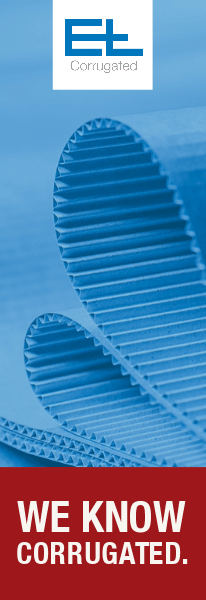Sonoco is prominently involved in the UK Government’s EPR consultation process and continues to engage with officials and wider industry stakeholders to scrutinise the detail of the legislation and to help shape a vision for the future.
The company’s white paper on the topic, first published in 2022, remains a hugely valuable resource, analysing what it really means to be a responsible producer. The paper examines the multiple ways in which the UK could improve its packaging recycling rates, going far beyond the scope of the proposed extended producer responsibility (EPR) legislation. The Government had set firm deadlines of 1st October 2023 and 1st April 2024 for large and small packaging producers respectively to enrol and submit data approaches. Though a recent Regulatory Position Statement (RPS) confirms that no legal enforcements will be taken for businesses registered in England and Scotland as long as the data is submitted by 31st May 2024, companies are still being encouraged to stick to the original deadlines where possible.
“Though the UK Government has recently pushed back its first hard deadline for large packing producers to enrol and submit data approaches, it’s vital that the industry as a whole maintains full engagement and awareness,” says Francesco Giannolo, Vice President and General Manager at Sonoco Consumer Products Europe. “Our aim right throughout this process has been to encourage as many stakeholders as possible to inform and involve themselves in the process, as we work towards the vision we all share – a vision of a more sustainable future for the packaging industry. Our white paper was a crucial part of this strategy, and it remains a valuable educational resource for the industry.”
The UK Government’s proposed EPR legislation seeks to boost recycling rates in the UK, and to reduce the amount of waste going to landfill for incineration. Through its white paper, Sonoco offers a background into the current recycling landscape in the UK – and addresses some of the challenges and trends, including a ‘postcode lottery’ and complete lack of consistency around the country when with recycling processes and accepted materials.
The subject of waste exports is addressed – including the worrying lack of accountability for how this waste is disposed of, and the fact that it is becoming increasingly difficult to find export destinations which will accept it. The environmental impact of food waste is also explored – from barrier films to preserve shelf life, to emptiability to ensure minimal food waste is disposed with its packaging.
Giannolo concludes, “We’re in complete agreement with the overall intent of the EPR legislation, but a degree of nuance and flexibility is crucial. To build a true picture of what a ‘responsible producer’ looks like, there is a lot more to consider than the type of packaging material they use. Creating recyclable packaging is important, but it is just one aspect of being responsible and sustainable. An EPR scheme that truly encourages responsible production should look at the full picture. With this paper we have set out what that full picture looks like.”



